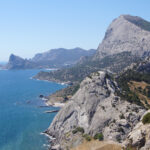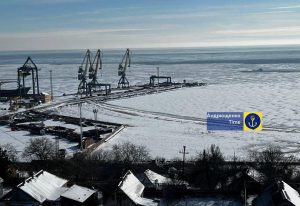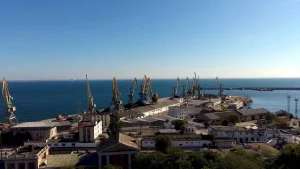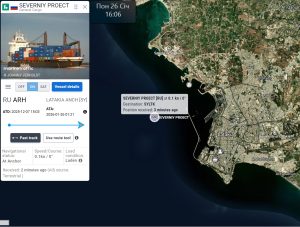The state of the coast of Crimea is approaching an ecological disaster
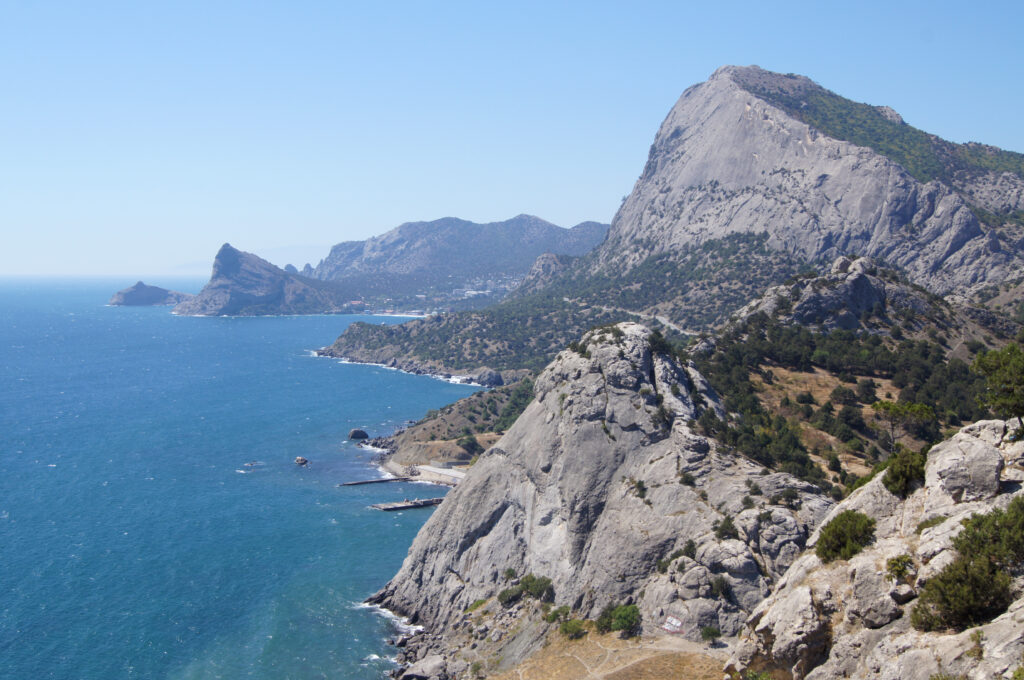
Large-scale military exercises conducted by the occupiers in the nature conservation areas of the Kerch Peninsula caused significant damage to the Crimean water area.
In the temporarily occupied Crimea, the state of the Black Sea coastal zone is reaching a critical point, threatening an ecological catastrophe. Oleksiy Vasylyuk, chairman of the board of the NGO “Ukrainian Environmental Protection Group”, Ukrinform writes.
Thus, a large number of Russian ships near the coast led to the destruction of deep-sea sewage discharges. The pollution is so extensive that the occupation authorities in many cities on the southern coast have banned the use of beaches.
Vasylyuk also noted that large-scale military exercises, which were held in the protected areas of the Kerch Peninsula, in particular in the Opuk Nature Reserve, caused significant damage to the nature of the peninsula. During the exercises, the occupiers launched rocket attacks, damaging the mountainous areas of the reserve.
In addition, the construction of the Crimean bridge had a negative impact on the ecosystem. The closure of the Kerch Strait created obstacles for the migration of dolphins and fish that reproduce in the Sea of Azov and move to the Black Sea.
The expert also drew attention to the fact that Crimea’s environment suffers from large-scale development and construction of new military bases. In particular, for the construction of the Tavrida highway, the Russians destroyed unique natural areas and cut down a significant amount of forests.
In his turn, Viktor Parkhomenko, a researcher of the impact of hostilities on wildlife and an expert of the “Ukrainian Environmental Protection Group”, emphasized that rocket launches from the territory of Crimea during the full-scale war with Ukraine additionally caused the pollution of coastal waters. Missiles that fell into the sea due to technical malfunctions contained toxic fuel that harms the environment.
The construction of fortifications on the peninsula also has catastrophic consequences for nature. Huge trenches, more than 70 km long, destroy ecosystems, destroying part of the Emerald network, coastal steppes and salt marshes, concluded Parkhomenko.
Recently, USM wrote that about 14,000 sq. km of the water area of Ukraine is polluted by mines as a result of Russia’s full-scale war against Ukraine.
